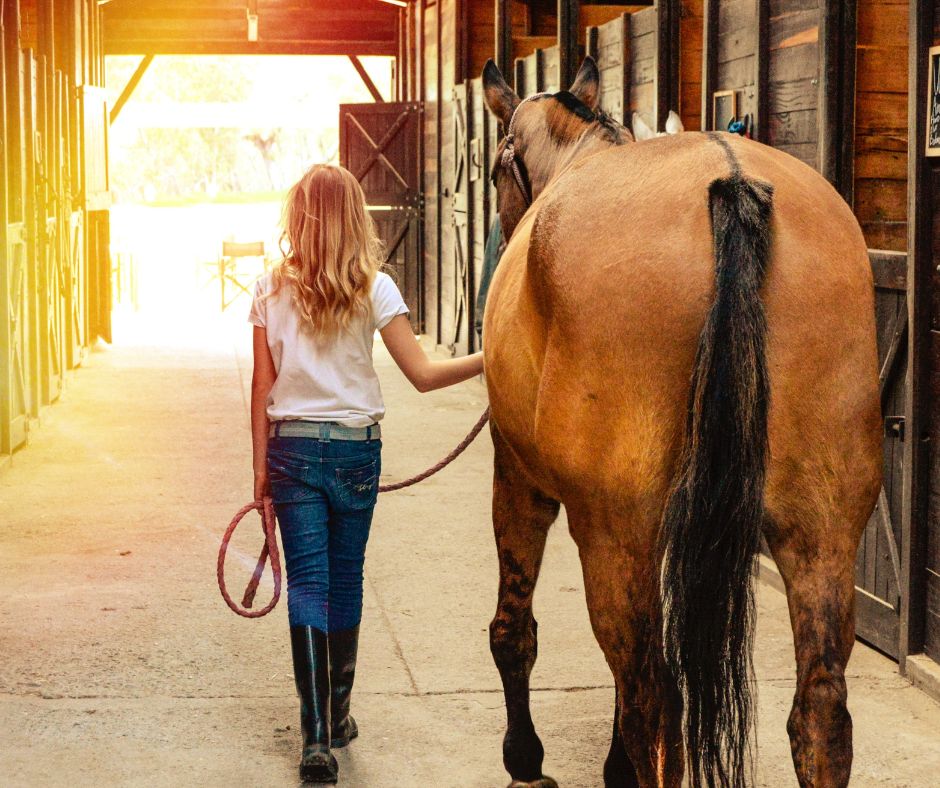Saving at the Stables – Horse Ownership in an Economic Crisis
By Chris Bates, DO, Animal Therapist and Lecturer at London College of Animal Osteopathy (LCAO)
If you’ve read the news or opened social media in the last 6 months, you know that much of the world is in a deep economic recession.
As countries try to find solutions to their financial woes, many of us worry not only about feeding families and heating our homes but also about the rising costs of equine ownership.
Our horses are an extension of us, and in these troubling times, it’s hard not to worry as to how to maintain their health and quality of life.
Despite the dire news that lights up our screens every day, all is not lost. There are many ways to cut back on costs while keeping your four-legged family members happy and healthy. Let’s talk about some ways to keep costs down and still enjoy time with our horses.
1. Sharing Duties
In many livery stables, owners pay dearly to cover the care of their horses while they are at work or otherwise engaged.
Luckily, the stables are shared with other owners who may be retired or simply work part-time. It often pays to speak to your barn companions and see if you can come up with a way to share duties.
If you have something to offer, such as teaching skills, therapy, or tack repair, then bartering can really pay off!
Sometimes, offering to muck out a friend’s horse in return for them catching yours from the paddock can save you big time, especially when considering the prohibitive costs of relying solely on the stable’s staff.
Of course, if you are on a contract to pay a set fee, then you can try to discuss this with your stables manager.
2. Bulk Deliveries
If you and your stable companions use the same supplier of feed, hay, and bedding, then organizing a bulk delivery with each recipient paying a percentage can really help cut down on expenses.
Often, people will use a certain feed type for their horse while unaware that the supplier provides the same feed or similar at a smaller cost. Many big brands will charge more per bag, but it’s worth checking the nutritional information of the less expensive brands as they are often exactly the same.
If there is a difference in the content, but you feel it could still provide your horse with the required diet, check with your vet or contact an equine nutritionist. Often, this one-off expense of getting advice more than makes up for overspending in the long term.
3. Second-Hand Sales
Check your local equestrian club’s notice boards, tack shops, and horsey social media for local second-hand sales. You’d be surprised how much stuff horse owners accumulate over time, and much of it might be useful for you.
We all know the feeling of walking into an equestrian store and being shocked at the price of things like tack, grooming supplies, and clothing. Second-hand sales can be a great place to find bargains and maybe even make some new horsey friends while you’re at it.
You might even be able to make a little extra cash by selling some items you no longer need. If you buy things such as bridles or girths, always check the stitching and look for any rips or weakened materials – this could save you a costly accident.
If buying saddles, ask the owner if you can pay a deposit and return it if your saddler says it isn’t right for your horse.
Rugs can often be found at good prices at second-hand sales, but consider re-proofing outdoor rugs with a proofing spray and always wash your new purchases to avoid passing any issues like mites, bacterial infections, or ringworm.
4. Shoeing
While this will depend on your individual horse, it might be possible to save some money by changing how you shoe your horse. If your horse is not doing a lot of work, maybe taking shoes off and just doing regular pairs for the winter will suit.
Or if you are riding but only in an arena on a good surface, your horse might do just fine with a half set. Speak to your farrier about options that would work for your horse. This can certainly save you some money.
5. Reevaluate Supplements
Take a good look at your supplements. Does your horse really need all of them? Supplements can get pretty expensive, and many are an expensive way to create luxury horse manure!
Unfortunately, there is not a lot of scientific data on many supplements- some can even be detrimental, like garlic, but that’s another discussion.
If your horse is getting a well-balanced diet, it may not need certain supplements. If you feel what you’re giving your horse is helping, then by all means, keep it.
It’s worth thinking about and possibly cutting one or more supplements from your horse’s diet to save money.
There are always other ways to save during tough times when you own horses. Keep your eyes peeled on our social media and our website for more great tips and ideas.
For information on how you can become an equine osteopath, click here

